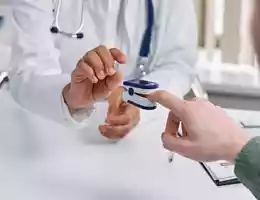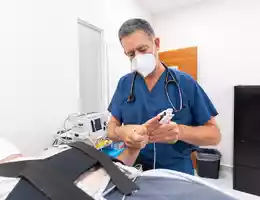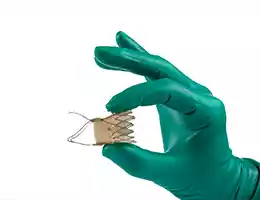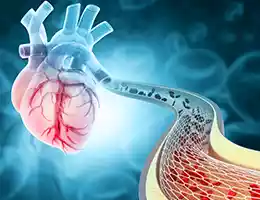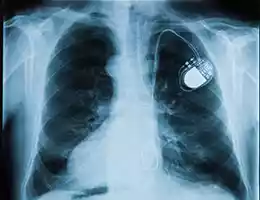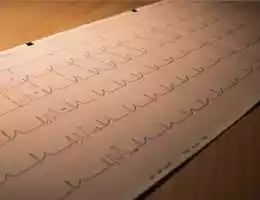PEER-REVIEWED PUBLICATIONS
1. Activation of vasodepressor reflexes by inotropic catecholamines. Karnad DR, Narula DD, Kulkarni SD, Anand AN, Tilve GH. N Engl J Med 1990; 322: 1531
2. Health Care in India. Johari P, Narula D, Gandhi N, Patel V. Br Med J 1993; 306: 1341
3. Percutaneous balloon dilatation of cor triatriatum sinister. Kerkar P, Vora A, Kulkarni H, Narula D, Goyal V, Dalvi B. Am Heart J 1996; 132(4): 888-91
4. Spontaneous coronary artery dissection in a young man with inferior wall myocardial infarction. Shah C, Narula D, Kulkarni H, Dalvi B. Am Heart J 1996; 132(3): 696-8
5. Early intrinsic deflection – a marker for successful radiofrequency ablation of overt accessory pathways. Lokhandwala YY, Smeets JLRM, Steld Bv, Narula D, Stockman D, Wellens HJJ. Ind Heart J 1996; 48: 138-144
6. Percutaneous stent implantation in an adult with left pulmonary artery stenosis and absent right pulmonary artery. Dalvi BV, Vora AM, Narula D, Kulkarni H. Eur Heart J 1997; 18(4): 700-1
7. Coil occlusion of a residual ductus arteriosus remaining after implantation of a buttoned device. Dalvi B, Vora A, Narula D, Goyal V, Ramakanthan R, Kulkarni H. Cathet Cardiovasc Diagn 1996; 39(1): 52-4
8. Percutaneous balloon occlusion of post-infarction ventricular septal defect. Vajifdar B, Vora A, Narula D, Kulkarni H. Ind Heart J 1996; 48(4): 407-8
9. Transcatheter radiofrequency ablation of tachyarrythmias. Vora A, Iyer R, Goyal V, Lokhandwala Y, Sathe S, Narula D, Dalvi B, Kulkarni H. J Assoc Phys India 1997; 45:349-55
10. New technique using temporary balloon occlusion for transcatheter closure of patent ductus arteriosus with Gianturco coils. Dalvi B, Goyal V, Narula D, Kulkarni H, Ramakantan R. Cathet Cardiovasc Diagn 1997; 41(1): 62-70
11. Risk factors for development of atrial fibrillation. Ehlert FA, Narula DD, Steinberg JS. In: “Atrial Fibrillation After Cardiac Surgery”, edited by Steinberg JS, Kluwer Academic Publishers, Norwell, MA 1999, pp. 51-80
12. Atrial fibrillation after noncardiac surgery. Narula DD, Steinberg JS. In: “Atrial Fibrillation After Cardiac Surgery”, edited by Steinberg JS, Kluwer Academic Publishers, Norwell, MA 1999, pp. 141-164
13. Diagnosis of Amiodarone Pulmonary Toxicity with High-Resolution Computerized Tomographic Scan. Siniakowicz RM, Narula D, Suster B, Steinberg JS. J Cardiovasc Electrophysiol 2001; 12: 431-6
14. The effect of head-upright tilt-table testing for vasovagal syncope on P-wave duration. Haider J, Kalus JS, White CM, Narula DD, Guertin DC, Caron MF, Kluger J. J Electrocardiol 2002; 35: 303-6
15. QT dispersion and viable myocardium in patients with prior myocardial infarction and severe left ventricular dysfunction. Li VH, Dorbala S, Narula D, Depuey G, Steinberg JS. Ann Noninvasive Electrocardiol 2002; 7: 53-9
16. Differences between QT and RR intervals in digital and digitized paper electrocardiograms: contribution of the printer, scanner, and digitization process. Hingorani P, Karnad Dr, Panicker GK, Deshmukh S, Kothari S, Narula DD. J Electrocardiol 2008; 41:370-5
17. Z-score for benchmarking reader competence in a central ECG laboratory. Panicker GK, Karnad DR, Joshi R, Shetty S, Vyas N, Kothari S, Narula DD. Ann Noninvasive Electrocardiol 2009; 14:19-25
18. Intra- and interreader variability in QT interval measurement by tangent and threshold methods in a central electrocardiogram laboratory. Panicker GK, Karnad DR, Natekar M, Kothari S, Narula DD, Lokhandwala YY. J Electrocardiol 2009; 42:348-52
19. Effect of Number of Replicate Electrocardiograms Recorded at Each Time Point in a Thorough QT Study on Sample Size and Study Cost. Natekar M, Hingorani P, Gupta P, Karnad DR, Kothari S, de Vries M, ZumBrunnen T, Narula D. Journal of Clinical Pharmacology 2011;51:908-14
20. Automated QT interval measurements in 12-lead digital Holter ECGs: A comparison of ECGs sampled at 180 Hz and 1000 Hz. Panicker GK, Salvi V, Karnad DR, Macfarlane P, Clark E, Ramasamy A, Kothari S, Narula D. Computing in Cardiology 2010;37:761-764
21. Difference in automated QT interval measurements in Holter electrocardiograms recorded at sampling rates of 180 and 1000 Hz: effects of up-/down-sampling of the digital electrocardiogram signal. Panicker GK, Salvi V, Karnad D, Ramasamy A, Kothari S, Narula D. Journal of Electrocardiology 2011– J Electrocardiol. 44. 10.1016/j.jelectrocard.2010.12.098.
22. Limb Lead Interchange in Thorough QT/QTc Studies. Salvi V, Karnad DR, Panicker GK, Kothari S, Hingorani P, Natekar M, Mahajan V, Narula D. Journal of Clinical Pharmacology 2011; 51(10):1468-73
23. Comparison of five methods of QT interval measurements on ECGs from a thorough QT/QTc study: Effect on assay sensitivity and categorical outliers. Salvi V, Karnad DR, Panicker GK, Natekar M, Hingorani P, Kerkar V, Ramasamy A, de Vries M, ZumBrunnen T, Kothari S, Narula D. Journal of Electrocardiology 2011; 44(2):96-104
24. Choice of an alternative lead for QT interval measurement in serial ECGs when Lead II is not suitable for analysis. Salvi V, Karnad DR, Kerkar V, Panicker GK, Manohar D, Natekar M, Kothari S, Narula D, Lokhandwala Y..Indian Heart Journal 2012; 64(6):535-40
25. Morphological abnormalities in baseline ECGs in healthy normal volunteers participating in phase I studies.Hingorani P, Natekar M, Deshmukh S, Karnad DR, Kothari S, Narula D, Lokhandwala Y. Indian J Med Res. 2012; 135:322-30
26. QTc interval and its variability in patients with schizophrenia and healthy subjects: implications for a thorough QT study. Hingorani P, Karnad DR, Natekar M, Kothari S, Narula D, Lokhandwala Y. Int J Neuropsychopharmacol. 2012;15:1535-40
27. Baseline and new-onset morphologic ECG abnormalities in healthy volunteers in phase I studies receiving placebo: changes over a 6-week follow-up period. Hingorani P, Karnad DR, Natekar M, Kothari S, Narula D. Journal of Clinical Pharmacology 2014 ;54:776-84
28. Sudden Death in Patients With Coronary Heart Disease Without Severe Systolic Dysfunction. Chatterjee NA, Moorthy MV, Pester J, Schaecter A, Panicker GK, Narula D, Lee DC, Goldberger JJ, Kadish A, Cook NR, Albert CM, for the PRE-DETERMINE Study Group JAMA Cardiol. 2018;3(7):591–600. doi:10.1001/jamacardio.2018.1049
29. Estimating Myocardial Infarction Size with a Simple Electrocardiographic Marker Score. Lee DC, Albert CM, Narula D, Kadish AH, Panicker GK, Wu E, Schaechter A, Pester J, Chatterjee NA, Cook NR, Goldberger JJ. J Am Heart Assoc. 2020; 9:e014205. doi: 10.1161/JAHA.119.014205
30. Simple electrocardiographic measures improve sudden arrhythmic death prediction in coronary disease. Chatterjee NA, Tikkanen JT, Panicker GK, Narula D, Lee DC, Kentta T, Junttila JM, Cook NR, Kadish A , Goldberger JJ, Huikuri HV, Albert CM, for the PREDETERMINE Investigators. European Heart Journal 2020; 41: 1988–1999, https://doi.org/10.1093/eurheartj/ehaa177
31. Validation of electrocardiographic criteria for identifying left ventricular dysfunction in patients with previous myocardial infarction. Panicker GK, Narula D, Albert C, Lee DC Kothari S, Goldberge JJ, Cook NR, Schaechter A, Kim E, Moorthy MV, Pester J, Chatterjee N, Kadish A, Karnad D. Annals of Noninvasive Electrocardiology 2020. https://doi.org/10.1111/anec.12812
32. A Rare Case Report of Flecainide-Induced Left Bundle Branch Block (LBBB) and Transient Cardiomyopathy. Chauhan S, Morris D, Bhatnagar M,Shah P, Narula D. Cureus 2023 15(4): e37184. DOI 10.7759/cureus.37184
DISSERTATION
For M.D. (General Medicine)
1. A study of Creatinine clearance in Iron deficiency and its’ correction by oral Iron. Narula D, Medhekar TP. Dissertation accepted by the University of Bombay for the award of the degree of M.D. (Medicine), 1992
For D.M. (Cardiology)
2. Transcatheter closure of the Patent Ductus Arteriosus. Narula D, Kulkarni HL. Dissertation accepted by the University of Bombay for the award of the degree of D.M. (Cardiology), 1995
ABSTRACTS (US/EUROPE)
1. Prolonged QT Dispersion Correlates with Appropriate Implantable Cardioverter-Defibrillator Therapy. Narula DD, Wali AU, Vloka ME, Menon V, Steinberg JS. Circulation 1997; 96:I-715
2. Actuarial Survival of CPI Epicardial and Endocardial Defibrillation and Rate Sensing Leads. Narula DD, Steinberg JS, Ehlert FA, Vloka ME, Novak BJ. Circulation 1997; 96:I-694
3. Relationship of QT Dispersion to Mode of Onset of Spontaneous Ventricular Tachycardia in Patients with Implantable Defibrillators. Narula DD, Kaddaha RM, Wali AU, Vloka ME, Lewis R, Steinberg JS. PACE 1998; 21(no. 4 pt. II): 965
4. Electrophysiology Study Characteristics: Correlation with Cardiac Death and Defibrillator Shocks in the Multicenter Automated Defibrillator Implantation Trial. Narula DD, Steinberg JS, Ehlert FA, Vloka ME, Zareba W, for the MADIT investigators. J Am Coll Cardiol 1998; 31(suppl. A): 159A
5. Do Specialists Make a Difference in the Management of Unexplained Syncope? Vloka ME, Sharma A, Narula DD, Ehlert FA, Steinberg JS. J Am Coll Cardiol 1998; 31 (suppl. A): 363A
6. Age Dependent Atrial Activation Delay: Observations Using the P-Wave Signal Averaged Electrocardiogram. Vloka ME, Sadurski R, Narula DD, Menon V, Ehlert FA, Steinberg JS. J Am Coll Cardiol 1998; 31 (suppl. A): 47A
7. Use of QT dispersion for risk stratification after acute myocardial infarction is hampered by high day to day variability. Vloka ME, Wali AU, Narula DD, Ehlert FA, Steinberg JS. Circulation 1998; 98:I-81A
8. Is there a gender bias in selection of dual chamber and rate responsive pacemakers? Narula DD, Jaber WA, Widmer AJ, Ehlert FA, Vloka ME, Steinberg JS. J Am Coll Cardiol 1999; 33:154A
9. Poor correlation of automated and manual QT dispersion measurements in patients and normal subjects. Vloka ME, Babaev A, Ehlert FA, Narula DD, Steinberg JS. J Am Coll Cardiol 1999; 33:350A
10. Atrial defibrillation using the conventional implantable defibrillator. Kaddaha R, Narula DD, Fefer F, Ehlert FA, Steinberg JS. J Am Coll Cardiol 1999; 33:146A
11. Atrial fibrillation after minimally invasive bypass surgery is not less frequent than after CABG. Sutander A, Tamis JE, Narula D, Gemayel CY, Vloka ME, Steinberg JS. PACE 1999; 22:719
12. Is there any value to pre-ICD electrophysiologic study for patients with ventricular tachyarrhythmias? Vloka ME, Sutander A, Kaddaha RM, Babaev A, Narula DD, Steinberg JS. Circulation 1999; 100:I-571
13. Variations in selection of dual chamber and rate responsive pacemakers: influence of geographic region and physician gender. Narula DD, Jaber WA, Vloka ME, Kim JS, Larsen MD, Kaddaha RM, Ehlert FA, Steinberg JS. J Am Coll Cardiol 2000; 35:141A
14. Adjusted pacemaker implant rates are lower in women than men at all ages – is gender bias at work? Narula DD, Jaber WA, Vloka ME, Kim JS, Larsen MD, Sutander A, Ehlert FA, Steinberg JS. J Am Coll Cardiol 2000; 35:142A
15. Assessing reader variability in a core ECG laboratory. Panicker GK, Karnad DR, Joshi R, Bhoir H, Kothari S, Narula D. Presented at the Drug Information Association Cardiac Safety Conference, Berlin, December 2006
16. Comparison of measurement of the QT and RR intervals between digital electrocardiograms and paper electrocardiograms that are scanned and digitized. Hingorani P, Karnad DR, Panicker GK, Deshmukh S, Kothari S, Narula D. Presented at the Drug Information Association Cardiac Safety Conference, Berlin, December 2006
17. Optimum number of replicates of ECGs in a thorough QT study. Natekar M, Hingorani P, Gupta P, Karnad DR, Kothari S, deVries M, ZumBrunnen T, Narula D. Presented at the Drug Information Association conference on QT and Arrhythmia issues in Drug Development, Washington DC, April 2007
18. Frequency and accuracy of detection of limb lead misplacement in thorough QT studies. Salvi S, Panicker GR, Hingorani P, Mahajan V, Bhoir H, Karnad DR, Kothari S, Narula D. Presented at the Drug Information Association Cardiac Safety Conference, Prague, December 2007
19. Evaluation of intra- and inter observer variability in a core ECG laboratory. Narula D. Presented at IIR Meeting January 2008
20. Prevalence of morphologic abnormalities in healthy normal volunteers on placebo participating in phase I studies. Hingorani P, Natekar M, Deshmukh S, Karnad DR, Kerkar V, Kaurani P, Kothari S, Narula D. Presented at the Drug Information Association conference on QT and Arrhythmia issues in Drug Development, Bethesda, April 2008
21. Do subjects in a positive QT study respond similarly to moxifloxacin and two doses of study drug? Panicker GK, Natekar M, Karnad DR, Kothari S, Narula D. Presented at the Drug Information Association conference on QT and Arrhythmia issues in Drug Development, Bethesda, April 2008
22. Subjects in a positive thorough QT study respond similarly to moxifloxacin and two doses of study drug: is this a pharmacokinetic or a pharmacodynamic response? Panicker GK, Kerkar V, Natekar M, Karnad DR, Kothari S, Narula D. Presented at the American College of Pharmacology 38th Annual Meeting, San Antonio, September 2009
23. Automated QT interval measurements in 12-lead digital Holter ECGs: A comparison of ECGs sampled at 180 Hz and 1000 Hz. Panicker GK, Salvi V, Karnad DR, Macfarlane P, Clark E, Ramasamy A, Kothari S, Narula D. Presented at Drug Information Association (DIA) ‘QT and arrhythmia issues in drug development’, Bethesda. April 2010
24. Frequency and accuracy of detection of limb lead interchange in thorough QT studies. Salvi V, Panicker GK, Karnad DR, Hingorani P, Kothari S, Narula D. Presented at Drug Information Association (DIA) ‘QT and arrhythmia issues in drug development’, Bethesda. April 2010
25. Difference in automated QT interval measurements in Holter ECGs recorded at sampling rates of 180Hz and 1000Hz: Effects of up-/down-sampling of the digital ECG signal. Panicker GK, Salvi V, Karnad DR, Ramasamy A, Kothari S, Narula D. Presented at 37th International Congress on Electrocardiology, Lund, Sweden. June 3-5 2010
26. Comparison of subjects with QTc values exceeding pre-specified upper limits in a thorough QT (TQT) study using five different methods of QT interval measurement. Salvi V, Panicker GK, Hingorani P, Ramasamy A, Natekar M, Karnad DR, Kothari S, Narula D. Presented at 37th International Congress on Electrocardiology, Lund, Sweden. June 3-5 2010
27. Electrocardiographic markers of myocardial infarction size, transmural extent, and extent of nonviable myocardium – comparison to CMR. Lee DC, Albert C, Narula D, Kadish A, Schaechter A, Wu E, Goldberger J. Journal of Cardiovascular Magnetic Resonance 2016 . 18. P78. 10.1186/1532-429X-18-S1-P78.
ABSTRACTS (INDIA/CHINA)
1. Balloon Dilatation of Modified Blalock-Taussig Shunts. Narula D, Kerkar P, Vora A, Gupta S, Banker D, Nabar A, Shah C, Kulkarni H. Ind Heart J 1994; 46: 220
2. Transcatheter treatment of Coronary Arterial Fistulae. Banker D, Vora A, Kerkar P, Narula D, Ramakanthan R, Kulkarni H, Mathew S. Ind Heart J 1994; 46: 220
3. Transcatheter Closure of Atrial Septal Defect and Patent Ductus Arteriosus: Initial Experience. Kerkar P, Kulkarni H, Vora A, Gupta S, Banker D, Narula D, Ramakanthan R, Shah C. Ind Heart J 1994; 46: 211
4. Radiofrequency Catheter Ablation for Tachyarrythmias: an initial experience. Sathe S, Vora A, Lokhandwala Y, Kerkar P, Narula D, Nabar A, Banker D, Kulkarni H. Ind Heart J 1994; 46: 243
5. Percutaneous Balloon Mitral Valvuloplasty in Mitral Restenosis. Gupta S, Kerkar P, Lokhandwala Y, Vora A, Shah C, Narula D, Gupta S, Kulkarni H. Ind Heart J 1994; 46:199
6. Magnesium and Acute Myocardial Infarction- a Late Potentials Study. Gupta S, Gupta S, Pandit RB, Kerkar P, Nabar A, Kulkarni H, Shah C, Narula D. Ind Heart J 1994; 46: 263
7. Use of temporary balloon occlusion to improve results of transcatheter coil closure of patent ductus arteriosus. Narula D, Dalvi B, Ramakantan R, Goyal V, Kulkarni H, Kerkar P, Vora A, Lokhandwala Y. Ind Heart J 1996; 48
8. Radiofrequency ablation of accessory pathways. Vora A, Sathe S, Lokhandwala Y, Narula D, Vajifdar B, Goyal V, Dalvi B, Kulkarni H. Ind Heart J 1995; 47:582
9. Radiofrequency catheter ablation for idiopathic ventricular tachycardia. Vora A, Nabar A, Narula D, Lokhandwala Y, Banker D, Sathe S, Shah C, Iyer R Ind Heart J 1995; 47:649
10. Electrophysiologic properties of the AV node after radiofrequency catheter ablation of slow pathway for AV nodal reentrant tachycardia. Sathe S, Lokhandwala Y, Vora A, Iyer R, Narula D, Nabar A, Vajifdar B, Goyal V, Kulkarni H. Ind Heart J 1995; 47:621
11. Emergency balloon valvuloplasty in patients of mitral stenosis presenting with cardiac arrest, cardiogenic shock or unresponsive pulmonary edema. Banker D, Lokhandwala Y, Dalvi B, Vora A, Kerkar P, Shah C, Narula D, Kulkarni H. Ind Heart J 1995; 47:584
12. Aneurysms of the sinuses of Valsalva: a morphologic study. Nabar A, Iyer R, Vora A, Narula D, Banker D, Shah C, Dalvi B, Kulkarni H. Ind Heart J 1995; 47:570
13. Echocardiography guided balloon atrial septostomy. Shah P, Narula D, Nabar A, Goyal V, Vora A, Iyer R, Dalvi B. Ind Heart J 1995; 47:604
14. Balloon Dilatation of cor triatriatum sinister. Shah C, Kerkar P, Dalvi B, Vora A, Narula D, Goyal V, Agaskar R, Kulkarni H. Ind Heart J 1995; 47:604
15. Correlation of duct size on colour flow and on aortography. Dalvi B, Narula D, Goyal V, Vora A, Kerkar P, Shah C, Kulkarni H. Ind Heart J 1995; 47:570
16. Non Coronary use of stents. Dalvi B, Vora A, Ramakanthan R, Bandekar V, Narula D, Nabar A, Shah P, Kulkarni H. Ind Heart J 1995; 47:570
17. Results of patent ductus arteriosus closure using the buttoned device. Kulkarni H, Narula D, Kerkar P, Lokhandwala Y, Vora A, Dalvi B, Sideris EB. Ind Heart J 1995; 47:580
18. Results of ASD closure using the buttoned device. Kulkarni H, Kerkar P, Lokhandwala Y, Vora A, Narula D, Fulwani M, Gupta S. Ind Heart J 1995; 47:582
19. Transcatheter retrieval of therapeutic occlusion devices. Nabar A, Vora A, Kerkar P, Lokhandwala Y, Dalvi B, Narula D, Kulkarni H. Ind Heart J 1995; 47:582
20. Radiofrequency ablation for ectopic atrial tachycardia. Vajifdar B, Narula D, Lokhandwala Y, Vora A, Shah C, Sathe S, Kulkarni HL. Ind Heart J 1996; 48:491
21. Interventional cardiac catheterisation in neonates and infants. Dalvi BV, Shah P, Narula D, Vajifdar B, Kulkarni S, Iyer R, Kerkar P. Ind Heart J 1996; 48:477
22. Intermediate term follow-up after slow pathway radiofrequency ablation for AV nodal reentrant tachycardia. Shah P, Iyer R, Narula D, Vora A, Sathe S, Lokhandwala Y, Kulkarni HL. Ind Heart J 1996; 48:494
23. Radiofrequency ablation of atypical AV nodal reentrant tachycardia. Kulkarni HL, Iyer R, Narula D, Lokhandwala Y, Vora A, Shah C, Nabar A. Ind Heart J 1996; 48:494
24. Intermediate followup of transcatheter coil closure of patent ductus arteriosus. Narula D, Goyal V, Vajifdar B, Kulkarni S, Kerkar P, Dalvi BV. Ind Heart J 1996; 48:494
25. Balloon pulmonary valvotomy in tetralogy of Fallot – initial results. Fulwani M, Narula D, Kulkarni S, Kerkar P, Nabar A, Vajifdar B, Dalvi BV. Ind Heart J 1996; 48:542
26. Is there a prethrombotic state in left atrial blood in rheumatic mitral stenosis? Nabar A, Narula D, Rodriguez C, Soren D, Vora A, Dalvi BV, Kulkarni HL, Ghosh K, Mohanty D. Ind Heart J 1996; 48:552
27. Wide QRS Complex: Is JTc better than QTc? Lanjevar A, Pathak V, Hemani D, Udeshi P, Salvi S, Narula D, Lokhandwala Y. Ind Heart J 2004; (56(5):528
28. Are there any gender differences in corrected QT interval (Bazett’s and Fridericia) in children between 6 to 14 years of age? Lanjewar P, Pathak V, Hemani D, Salvi S, Narula D, Lokhandwala Y. Ind Heart J 2004; 56(5):534
29. Comparison of 12-lead Holter and digital ECG for assessment of cardiac toxicity in drug trials. Pathak V, Narula D, Hemani D, Salvi S, Borkar S, Lanjewar P, Lokhandwala Y. Ind Heart J 2004; 56(5):529
30. Effect of study design on variability of the QT interval. Hemani D, Narula D, Salvi S, Borkar S, Pathak V, Nayak A, Lokhandwala Y. Ind Heart J 2004; 56(5):530
31. Effect of changes in heart rate on the corrected QT intervals calculated using Bazett’s and Fridericia’s formulae. Karnad D, Shetty S, Salvi S, Vyas N, Kothari S, Narula D, Lokhandwala Y. Ind Heart J Sept-Oct, 2005;57:(5).
32. Do electrocardiography characteristics predict variability in QT measurements in clinical trials? Shetty S, Khan M, Salvi S, Karnad DR, Kothari S, Narula D, Lokhandwala YY. Ind Heart J 2005; 57(5):493
33. Are physiological loads suitable for non-pharmacologic control in thorough QT/QTc study? Sahashi K, Ozaki M, Fujita T, Otani Y, Narula D, Desai D, Kumagai Y. Presented at International Pharmacological Conference, Beijing, China, July 2006.
34. Comparison of machine readings of QT and QTc intervals with manual readings. Deshmukh SR, Joshi R, Shetty S, Kothari S, Narula D, Lokhandwala YY, Karnad DR. Ind Heart J 2006; 58:488
35. Comparison of QT measurement by threshold method and tangent method. Panicker GK, Karnad DR, Joshi R, Kothari S, Narula D, Lokhandwala YY. Ind Heart J 2006;58:488
36. Comparison of Bazett, Fridericia, Framingham, population specific and individual QTc correction formulae. Hingorani P, Natekar MR, Kothari S, Narula D, Lokhandwala YY, Karnad DR. Ind Heart J 2006; 58:487
37. Comparison of QTc interval in diabetics with and without neuropathy and healthy normal volunteers. Salvi S, Hingorani P, Mahajan V, Bhoir H, Karnad DR, Kothari S, Narula D, Lokhandwala YY. Ind Heart J 2007; 59:418
38. Supraventricular arrhythmias in patients with Parkinson’s disease and healthy controls. Panicker GR, Salvi V, Kaurani P, Karnad DR, Kothari S, Narula D, Lokhandwala YY. Ind Heart J 2008; 60:247
39. Sinus arrhythmia in diabetes with and without peripheral neuropathy and in normal healthy subjects. Hingorani P, Satra A, Natekar M, Karnad DR, Kaurani P, Godse NA, Kothari S, Narula D, Lokhandwala YY. Ind Heart J 2008; 60:256
40. Prevalence of morphological abnormalities in healthy subjects participating in clinical trials. Hingorani P, Natekar M, Deshmukh S, Karnad DR, Kothari S, Narula D, Lokhandwala YY. Ind Heart J 2008; 60:361
41. Prevalence of ectopic complexes and arrhythmias on 24-hour Holter in healthy normal volunteers. Hingorani P, Natekar M, Kaurani P, Karnad DR, Kerkar P, Kothari S, Narula D, Lokhandwala YY. Ind Heart J 2008; 60:229
42. Influence of T wave morphology on variability in QT measurements. Deshmukh S, Karnad DR, Natekar M, Atre D, Sonawane R, More N, Panicker GK, Kothari S, Narula D, Lokhandwala YY. Ind Heart J 2008; 60:236
43. Impact of position of LL electrode on QTc interval in 12-lead Holter ECGs in normal healthy subjects. Salvi S, Karnad DR, Panicker GR, Mitesh R, Kothari S, Narula D. Presented at Global Cardiac Safety Conference. Mumbai, March 2008
44. QTc Interval and its variability in schizophrenic patients and healthy subjects. Hingorani P, Natekar M, Karnad DR, Kothari S, Narula D, Lokhandwala YY. Ind Heart J 2009; 61:129
45. Which lead in a 12-lead ECG has a QT interval closest to that in Lead II? Salvi V, Karnad DR, Kerkar V, Panicker GK, Natekar M, Kothari S, Lokhandwala Y, Narula D. Ind Heart J 2010; 61:
46. A study of QTc interval in healthy subjects with early repolarization. Panicker GK, Manohar D, Salvi V, Karnad DR, Kothari S, Narula D, Lokhandwala Y. Ind Heart J 2010; 61:
47. Prevalence of morphologic abnormalities in healthy normal volunteers on placebo participating in Phase I studies. Hingorani PV, Karnad DR, Natekar MR, Kothari S, Narula D, Lokhandwala YY. Presented at 65th Annual Conference of Cardiological Society of India (CSI), Bangalore, India, 5th – 8th December 2013.


